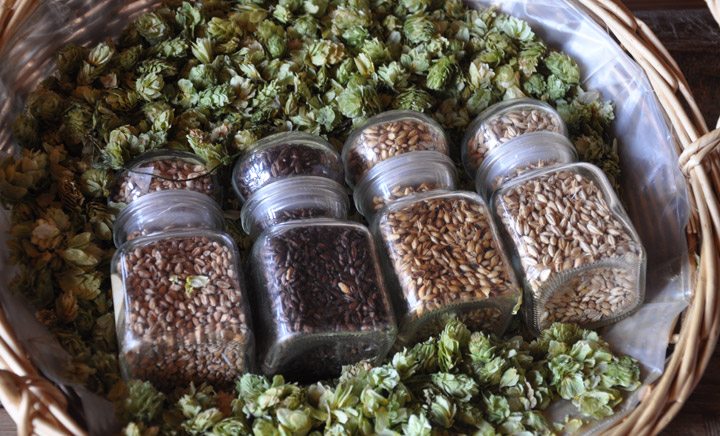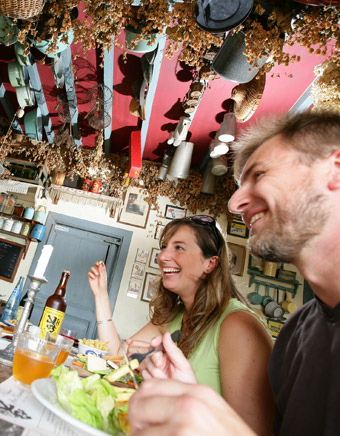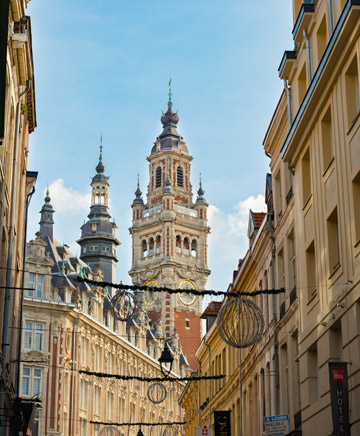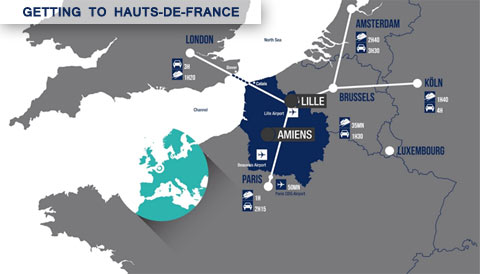Daniel Thiriez of Esquelbecq, near Calais, turned his passion into a vocation as a brewer.
Beer – part of France’s official cultural heritage, with a long and distinguished pedigree –comes in several colours: blond, amber, brown and even black. While it used to be an everyday drink brewed up at home, these days it’s the result of an expertise that differs by brewer, all of them united by that special French touch.
Are there secrets to brewing that they guard closely between them?
Dried hops embellishing the ceiling, cosy wooden seating, glasses tinkling, froth tickling lips – it’s a very French scene. You could almost believe you’re attending a wine tasting. But in Esquelbecq, a picturesque Flanders village, it’s tankards that bring visitors pouring in. Here, Daniel Thiriez – one of the first to exchange his office suit for an artisan brewer’s garb – opens the doors of his micro-brewery for a one-hour guided tours.
There are now more than 60 breweries in Northern France – it’s a profession that becomes a vocation. Hence the vast growth in the choice of tipples.
Flavour and its subtle variations are a life’s work, according to Daniel. And so I can’t help but ask him:
What are his brewing secrets’?
Daniel smiles. ‘Beer is water, malt, hops and yeast. All natural ingredients – no witchcraft. Five simple steps that anyone can do.’
The personality of a particular beer is like the signature dish of a French chef: it reflects the brewer’s personal touch, their sensibility, their whole life experience… So it’s goodbye to tasteless lagers: beer is all the rage, whether it’s IPA (India Pale Ale) – which is very hoppy and hence bitter –maturer strong pale or ‘keeping’ ales, fruit and even organic beers. As for the flavours: toast, hazelnuts, raspberries, cloves… It all depends on the brewer’s sensibility and tastes.
Combined, these factors create a whirlwind of gustatory pleasures. Mineral salts, cereals and nutrients compose the basis; if it’s not filtered out, the yeast adds vitamin B, which is rare in other foods. And with it being so natural, it’s not unreasonable to suppose that beer might be good for the health (when consumed in moderation, of course).
Where to eat in Cassel ?
Take a table at the Estaminet de Kerelshof in Cassel – a restaurant typical of Northern France – for tastings straight from the brewer and to truly immerse yourself in French art de vivre. Bierlala (named after a Cassel carnival song), for instance, is bound to inspire you to sing and to share moments of pleasure and conviviality in an authentic French setting. It’s all just a question of alchemy between a brewer, their product and those who taste it…
Things to do in Lille
Round off your visit by following Lille’s beer route: a kind of beer-lovers’ treasure hunt organised by l'Echappée bière. Booklet in hand, set out to discover the city’s streets and monuments (the UNESCO-listed town-hall belfry, Vieux Lille and its Grand’Place, La Grande Braderie flea-market, the Cathédrale de la Treille, Lille Metropole Musée d’art Moderne...) while answering questions about Lille’s history and taking photographs. Stop-offs in three or four unmissable bars included on your route give you the opportunity to enjoy a blind tasting while providing you with more clues…
Where to stay near Calais ?
Au Petit Manoir in Socx near Calais is a charming B&B and table d’hôte. Host Jean Jacques, who is passionate about French cuisine, will serve you recipes based on local produce. Before setting out to discover more breweries and farm-inns, make sure to fill up on his hearty breakfast, including french baguettes, croissants and cheese.





